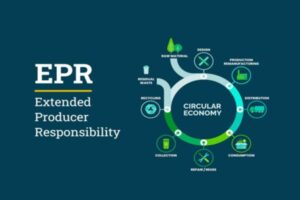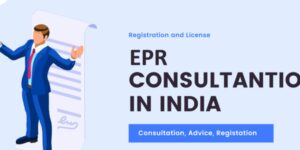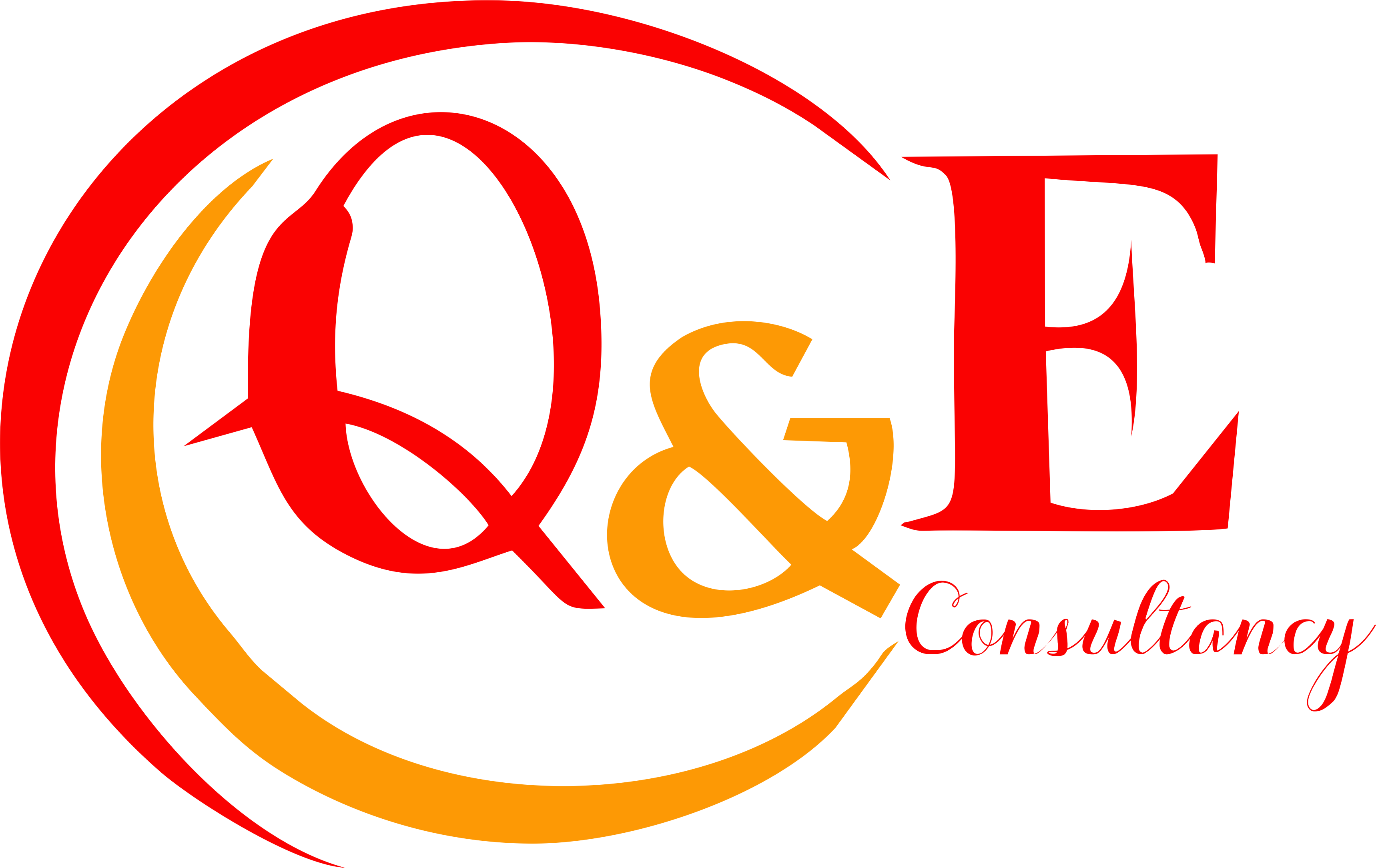As environmental regulations become stricter worldwide, India is stepping up by adopting Extended Producer Responsibility (EPR) as a key strategy to tackle pollution and foster sustainability. For producers, importers, and brand owners (PIBOs), navigating the EPR landscape can feel quite daunting.
That’s where EPR consultants come in—they’re essential in steering businesses toward legal compliance and eco-friendly waste management practices. Companies like Q&E Consultancy Services are at the forefront of this shift, providing expert guidance on EPR registration for both plastic waste and e-waste, helping organizations minimize their environmental impact while ensuring they meet regulatory requirements.
Understanding the EPR Framework in India

Extended Producer Responsibility (EPR) is a policy that places significant responsibility—both financial and physical—on producers for the treatment or disposal of post-consumer products. In India, the EPR framework is mainly enforced through the Plastic Waste Management Rules, 2016, and the E-Waste (Management) Rules, 2016, both established by the Central Pollution Control Board (CPCB).
According to these regulations, companies involved with plastic packaging or electronic products must register with the CPCB or State Pollution Control Boards (SPCBs) and take charge of collecting, recycling, or disposing of the waste generated from their products. Not complying can result in legal repercussions, including fines and potential shutdowns. With these regulatory challenges, the need for professional EPR consultants in India has surged.
Why Businesses Need EPR Consultants
Whether you’re a startup or a large multinational, ensuring EPR compliance requires a lot of paperwork, continuous waste tracking, and collaboration with third parties. Q&E Consultancy Services fills this gap by providing customized EPR services that assist businesses in:
- Obtaining necessary registrations from CPCB/SPCB
- Developing and implementing EPR action plans
- Connecting with certified recyclers and processors
If you’re looking to get EPR registration for plastic waste, you’ll need to categorize the types of plastic accurately (think Categories I to IV), provide yearly projections, and set recovery targets. The same goes for e-waste EPR registration, where you’ll have to supply detailed information about product categories (like IT and consumer electronics), import volumes, and your channel partners. Professional consultants can make this process a breeze by handling the paperwork, guiding you through legal compliance, and ensuring everything is accounted for from start to finish.
EPR Registration for Plastic Waste: A Growing Necessity
Plastic pollution is a major environmental challenge today, with India producing over 3.5 million tonnes of plastic waste each year. To tackle this issue, the government requires all PIBOs involved in plastic packaging to register and meet their annual collection targets under EPR. Q&E Consultancy Services is here to help businesses with:
- Identifying the relevant plastic categories and sub-categories
- Submitting online applications through the EPR portal
- Developing waste management plans with achievable collection and recycling goals
- Collaborating with registered PROs (Producer Responsibility Organisations)
Failing to comply can lead to hefty fines and tarnish a company’s reputation among environmentally conscious consumers. That’s why having seasoned EPR consultants on your side can streamline the registration process and keep your business ahead of regulatory changes.
EPR Registration for E-Waste: Complying with CPCB Norms
E-waste is one of the fastest-growing waste streams globally, and India is among the top contributors. The E-Waste (Management) Rules, 2022 (an update to the 2016 Rules) require all producers and importers of electrical and electronic equipment to take responsibility for the disposal of their products at the end of their life cycle. The EPR registration for the E-waste process involves:
- Figuring out which product categories and codes are covered (Schedule I of E-waste Rules)
- Sharing annual production and import figures
- Crafting take-back strategies and collection plans
- Sending monthly and yearly reports to the CPCB
Q&E Consultancy Services makes this process easier with a dedicated e-waste compliance team, ensuring your Extended Producer Responsibility (EPR) plan is not only practical and efficient but also meets CPCB guidelines.
Challenges Companies Face in EPR Compliance
Even with a clear framework, many companies find EPR registration to be a challenge because of:
- Unclear guidelines – The CPCB rules are frequently updated, and many Producers of Imported Brand Owners (PIBOs) are often out of the loop on the latest compliance requirements.
- Lack of internal expertise – Most companies don’t have teams focused solely on environmental compliance.
- Data management issues – Keeping accurate tabs on production, import, and waste collection data is crucial, but can be quite labour-intensive.
- Delays in CPCB approvals – Mistakes in documentation or unclear action plans can lead to long wait times or even rejections.
This is where expert consultants like Q&E Consultancy come in handy. They not only help businesses navigate the complexities of EPR regulations but also save time and money by preparing comprehensive documentation right from the start.

Role of EPR Consultants in End-to-End Compliance
EPR compliance isn’t just a one-off task; it’s an ongoing commitment. Registered entities need to submit quarterly reports, work closely with waste processors, keep detailed records, and renew licenses regularly. Q&E Consultancy Services provides a full compliance package that includes:
- Pre-application advice to determine if your business requires EPR registration
- Documentation and submission of the online application along with the necessary annexures
- Communication with CPCB/SPCB to monitor approval status
- Partnerships for collection and disposal with registered recyclers and dismantlers
- Ongoing monitoring and reporting to ensure you meet your annual targets
By providing turnkey services, Q&E makes sure your organization efficiently meets all legal and environmental standards.
Regulatory Landscape: CPCB Guidelines and Evolving EPR Mandates
In recent years, the Indian government has been actively refining its regulatory framework to tackle the environmental challenges posed by poorly managed plastic and electronic waste. The Central Pollution Control Board (CPCB) is the leading authority responsible for creating and enforcing EPR guidelines, and businesses need to keep up with its changing mandates to stay compliant.
The Plastic Waste Management (PWM) Rules, which were last updated in 2022, introduced stricter definitions and broadened the responsibilities for Producers, Importers, and Brand Owners (PIBOs). It classified plastic packaging into four main categories and set mandatory targets for reuse, recycling, and disposal at the end of life. Likewise, the E-Waste Management Rules, 2022, which revised the 2016 version, added new responsibilities such as environmental compensation for non-compliance, an online tracking system for producers, and mandatory recovery targets based on product categories.
One of the biggest hurdles for companies is keeping pace with these ever-changing regulations. The CPCB portals also demand precise data formatting, supporting documents, and clear action plans—any mistakes or lack of clarity can result in rejections or delays in registration. Q&E Consultancy Services keeps a close eye on all regulatory updates and assists clients in adapting to these changes proactively. From adjusting waste management plans to align with new rules to submitting updated documentation, their expert team ensures that your business stays on top of compliance. By remaining informed about CPCB advisories and amendments, they act as a dependable compliance partner in a constantly shifting regulatory landscape.
Building a Circular Economy Through Strategic EPR Planning
When it comes to more than just compliance, Extended Producer Responsibility (EPR) is a game-changer for steering India towards a circular economy. This is a system where products and materials are reused, recycled, or regenerated, which helps cut down on waste and resource use. Companies that approach EPR strategically don’t merely check off a legal requirement—they position themselves as pioneers in sustainable innovation.
Effective EPR planning involves creating packaging that can be recycled or reused, teaming up with responsible recyclers, launching take-back initiatives, and educating consumers on proper disposal methods. Rather than seeing EPR as a burden, businesses can leverage it as a chance to enhance their supply chains, lessen their reliance on raw materials, and boost their sustainability image.
Take FMCG companies, for instance; they can revamp their product packaging to utilise mono-material plastics that are simpler to recycle. Electronics brands might roll out buy-back or repair programs to prolong the lifespan of their devices. Logistics firms can work on minimising secondary packaging waste or partner with reverse logistics specialists.
Why Opt for Q&E Consultancy Services for EPR Registration?
In a bustling field of EPR consultants, Q&E Consultancy Services shines with its clear, customised, and results-oriented approach. Their team of regulatory experts, environmental analysts, and compliance managers offers tailored guidance and hands-on support from the registration phase all the way to reporting.
Their impressive track record features successful registrations for clients in:
- FMCG & food packaging (plastic waste)
- Electronics manufacturing (e-waste)
- Import/export businesses
- Online retailers and logistics companies
With up-to-date knowledge of CPCB protocols and strong collaboration with PROs and recyclers, Q&E provides businesses with peace of mind and a sustainable path forward.
Final Thoughts: EPR Compliance as a Competitive Advantage
Sustainability is now a business necessity rather than merely an ethical decision. Aligning your business with EPR laws is crucial since environmental consciousness is influencing government policies and consumer preferences.
Companies can guarantee legal compliance and establish themselves as responsible, progressive brands by collaborating with a reputable company like Q&E Consultancy Services. Expert advice can transform regulatory obstacles into tactical opportunities, whether it is EPR registration for plastic waste or EPR registration for e-waste.
With knowledgeable consultants by your side, begin your path to sustainable waste management right now.
